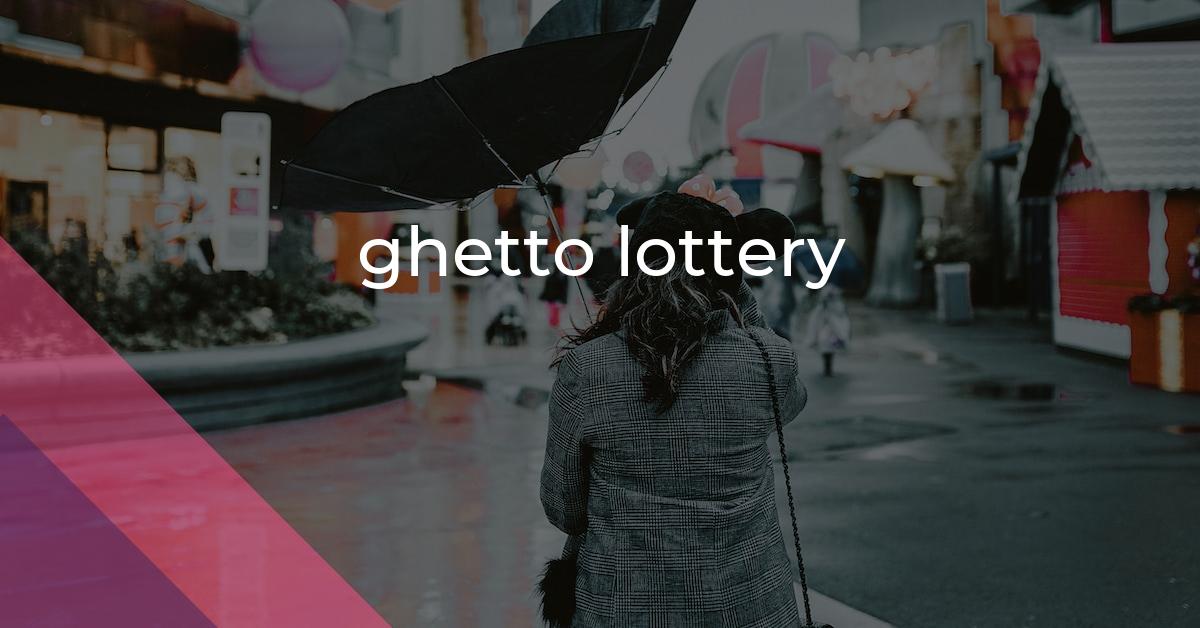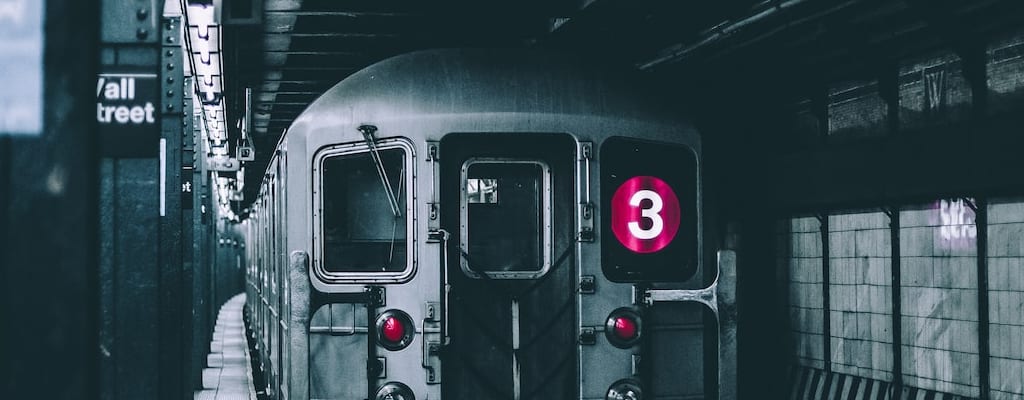ghetto lottery: Idiom Meaning and Origin
What does ‘ghetto lottery’ mean?
The idiom *ghetto lottery* refers to the perception that living in a disadvantaged neighborhood has a high likelihood of resulting in unfortunate events or circumstances, often related to crime or poverty.

Idiom Explorer
The idiom "luck of the draw" means that the outcome of a situation is determined purely by chance or luck, with no control or influence over the result.
An idiom that describes a situation where something unexpectedly turns out to be successful or advantageous, despite initial expectations. The outcome is usually positive, but may also involve a degree of unpredictability or chaos.
The idiom "ghetto bird" refers to a police helicopter that often patrols low-income or urban areas. It is typically used to describe the presence or sound of the helicopter and the negative connotations associated with police surveillance in these communities.
The idiom "get what's coming to one" means to receive the punishment or consequences that one deserves for their actions or behavior.
The idiom "genetic lottery" refers to the concept that one's genetic makeup, which determines physical appearance, abilities, and other traits, is a result of chance or luck. It implies that some individuals are fortunate or privileged in terms of their genetic inheritance.
The idiom "five will get you ten" suggests a strong probability or certainty that a particular outcome will occur. It implies that if something is highly likely to happen, it can be predicted with confidence.
The idiom "fighting chance" means a reasonable opportunity or possibility to succeed, despite facing difficult or unfavorable circumstances.
The idiom "fat chance" is used sarcastically to convey that there is no or little likelihood of something happening.
The idiom "fancy one's chances" means to believe or have confidence in one's likelihood of success in a particular situation or endeavor.
Decoding the Enigma
The idiom "ghetto lottery" is a phrase that has its roots in African American vernacular. This idiom refers to the perceived chances of success or financial gain that can be achieved through engaging in illegal or high-risk activities in impoverished neighborhoods. It is important to note that this is a figurative expression and should not be taken literally.
The term "ghetto" in this idiom is derived from the Yiddish word meaning a Jewish quarter in a city, historically associated with poverty and crowded living conditions. Over time, the term has evolved to refer to economically disadvantaged urban areas inhabited primarily by minority populations, typically African Americans. The term "ghetto lottery" encompasses the struggles and realities faced by individuals living in these communities.
The idiom "ghetto lottery" suggests that individuals may believe they have a chance to improve their circumstances by engaging in risky behavior, such as drug dealing or other illegal activities, as a way to achieve financial gain. This idiom recognizes the desperate situation faced by some individuals living in poverty, where limited opportunities for upward mobility may drive them to resort to illicit means.
The related idiom "genetic lottery" refers to the concept of winning or losing in terms of genetic attributes or qualities. While the "ghetto lottery" focuses on socioeconomic conditions, the "genetic lottery" specifically refers to the random assignment of genetic traits at birth, such as intelligence, physical appearance, and health. In the context of the "ghetto lottery," the "genetic lottery" emphasizes the additional challenges faced by individuals born into disadvantaged backgrounds with limited access to resources and opportunities.
The idiom "luck of the draw" also relates to the concept of chance and random allocation of circumstances. It suggests that one's outcomes in life are determined by luck rather than personal efforts or decisions. In the context of the "ghetto lottery," the "luck of the draw" underscores the notion that individuals in economically disadvantaged neighborhoods may believe that their chances of success or upward mobility are solely determined by luck, rather than factors within their control.
Another related idiom, "ghetto bird," refers to a slang term used to describe police helicopters or surveillance aircraft frequently observed in high-crime areas. These aircrafts are often associated with law enforcement operations and efforts to combat crime. In the context of the "ghetto lottery," the term "ghetto bird" highlights the constant presence of law enforcement and the surveillance that individuals in such neighborhoods may experience. It also signifies the heightened level of risk and probability of encountering law enforcement authorities or engaging in illegal activities.
It is crucial to approach the idiom "ghetto lottery" with sensitivity and an understanding of the socioeconomic factors that contribute to the formation of such expressions. The idiom is rooted in the lived experiences of marginalized communities, and its usage should not perpetuate stereotypes or reinforce negative perceptions of these communities.
Through the idiom "ghetto lottery," there is an opportunity to explore the complex issues surrounding poverty, inequality, and the social and economic challenges faced by individuals living in disadvantaged areas. It sheds light on the consequences of systematic economic disparities and limited access to education and resources. Understanding the meaning of this idiom encourages a deeper understanding of the struggles faced by marginalized communities.
In examining the idiom "ghetto lottery," one must consider its broader implications and the underlying factors that contribute to its existence. It invites conversations about social justice, economic equity, and the need for comprehensive support systems to uplift and empower individuals living in disadvantaged communities. The idiom highlights the consequences of systemic factors and the potential for change, improvement, and opportunity.
The "genetic lottery," "luck of the draw," and "ghetto bird" are all related idioms that provide additional context and perspectives on the challenges faced by individuals in economically disadvantaged neighborhoods. These idioms underscore the role of chance, genetic attributes, and law enforcement presence in shaping the experiences of individuals living in poverty. By examining and understanding these related idioms, we can gain a more comprehensive understanding of the complex issues and struggles faced by marginalized communities.
While the interpretation and understanding of idioms can vary among individuals and communities, the idiom "ghetto lottery" prompts reflection on the injustices and challenges faced by those living in economically disadvantaged neighborhoods. It serves as a reminder of the lingering effects of historical inequalities and the ongoing struggle for socioeconomic equality.
Example usage
The idiom "ghetto lottery" can be used in the following ways:
- "She always thought that winning the ghetto lottery would be her ticket out of poverty."
- "Some people view government assistance as a form of ghetto lottery, hoping to receive a windfall without making any effort."
- "The media often portrays the ghetto lottery as a means for quick and easy wealth, misleading those who are desperate for a better life."
More "Slang" idioms



